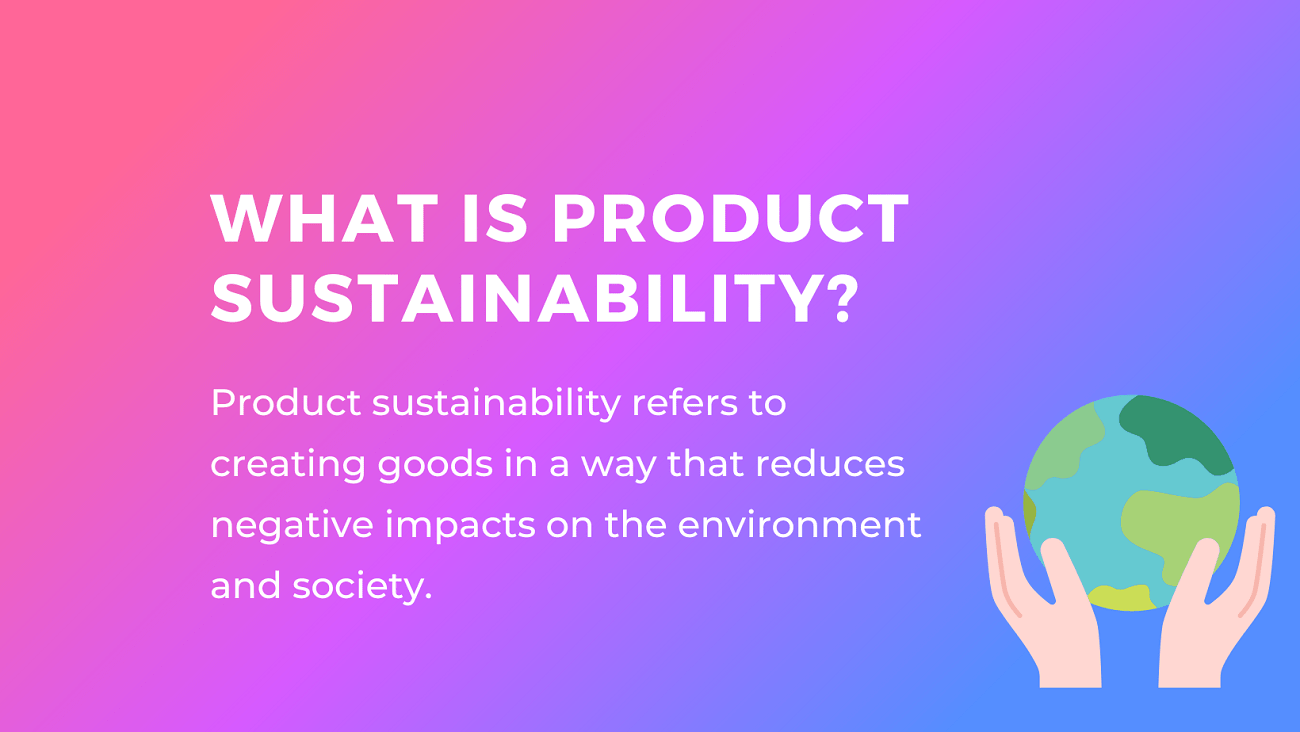Physical Address
304 North Cardinal St.
Dorchester Center, MA 02124
Physical Address
304 North Cardinal St.
Dorchester Center, MA 02124

Consumer demand for sustainable and eco-friendly products continues to grow. A recent survey found that 73% of consumers consider sustainability an important factor in their purchasing decisions. Companies that embrace sustainability can benefit from cost savings, an enhanced brand image, and appeal to environmentally-conscious consumers. In this blog post, we’ll explore what product sustainability entails and how companies can integrate sustainability into all stages of product development.
Table of Contents
Product sustainability refers to creating goods in a way that reduces negative impacts on the environment and society. This involves evaluating the entire lifecycle of a product from initial design and material sourcing to manufacturing, distribution, consumer use and end-of-life disposal. The goal is to maximize efficiency and minimize waste at each stage.
Transitioning to more sustainable practices presents both challenges and opportunities. Upfront costs may be higher when choosing eco-friendly materials or investing in greener manufacturing facilities. However, companies can realize long-term savings through energy and resource efficiency.
Sustainable sourcing can be difficult when supply chains are opaque. Strong supplier relationships and audits help ensure responsible sourcing. Products may also require redesign to accommodate different materials.
While consumers demand sustainability, they aren’t willing to compromise on product performance, quality or affordability. The product must still deliver on functional needs.
Many brands have overcome challenges to develop innovative sustainable products without sacrificing on cost or quality:
These examples show both small startups and large corporations can make business-wide commitments to sustainability.
Here are five ways companies can infuse sustainability into product development:
While companies have the largest responsibility and greatest ability to influence change, consumers also play a key role in supporting sustainable products.
Here’s how consumers can help drive adoption of sustainable goods:
Through power of purchases and voices, consumers can shift demand and encourage companies to prioritize sustainability.
Product sustainability is no longer a niche consideration but a business imperative. Consumers, employees, shareholders and regulators all have growing expectations for companies to minimize environmental and social impacts.
By taking a lifecycle approach and innovating across operations, companies can create products that are better for people and planet while still delivering strong functionality, quality and profitability. The brands that lead this charge will be best positioned for long-term success.